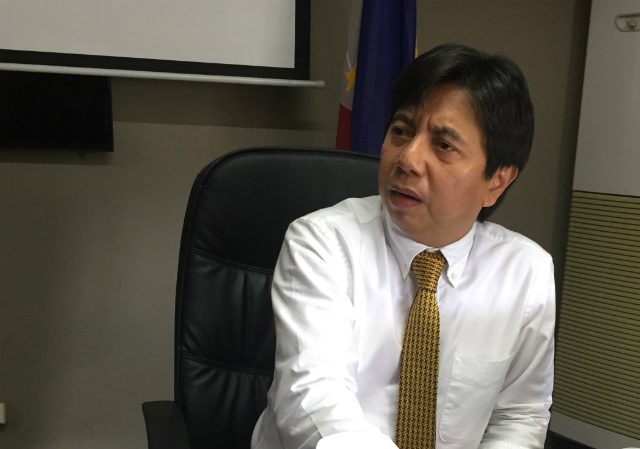SUMMARY
This is AI generated summarization, which may have errors. For context, always refer to the full article.

MANILA, Philippines – Federalism is the next logical step towards empowering local governments, former University of the Philippines National College of Public Administration and Governance Dean (UP NCPAG) dean Alex Brillantes Jr said.
“Federalism is really, as I used to say a long time ago, the next logical step to the evolution,” he told Rappler in an interview on Wednesday, August 3. “It will push the envelope for empowering our subnational governments.”
Shifting to a federalist form of government, however, is “not a matter of making our lives better,” said Brillantes, who has been studying and writing about federalism for more than a decade already. “I think it’s really a continuous search for the appropriate political or administrative structures as we’ve seen that what we really have now is not exactly the best.”
Talks about federalism as a “structural reform,” according to Brillantes, can definitely expand the potential of local government units.
“[Federalism] can be one fundamental reform that will somehow transform and most importantly empower the frontline local governments,” he emphasized. “For me, one major reason why we are where we are is precisely because our local governments haven’t sufficiently been empowered.”
The great ‘equalizer’
A federalist form of government, in simple terms, will break the Philippines into autonomous regions or states that will further be divided into local government units.
According to Brillantes, the beauty of federalism lies in its quest to address inequality among regions in the Philippines, something that is rampant in the current government system.
Under a unitary form of government, which we have now, the national government decides how much to give to local government units (LGU). This means that some are prioritized over other areas.
Under federalism, on the other hand, local governments are only required to turn over a small portion of their income to the state government they are under. Both local and state governments then can appropriate their own funds to their own projects sans a go signal from the national government.
Federalism then can serve as the “equalizer”, Brillantes said.
“If you look at the states, not all states are created equal as you have states that are richer, you have states that are poorer,” he explained. “That’s where the federal government, or the national government, will come in, in terms of redistributing, in terms of addressing the so-called disabilities.”
The Philippines, Brillantes added, will not start from zero when it comes to shifting to federalism, given the many years of experience with the Local Government Code. But a lot of work still needs to be done to attain a successful federal government.
The country, however, should not rely on other countries’ models of federalism.
“We studied models like Spain, Malaysia, Canada, and Australia, we looked at them,” Brillantes said. “But at the end of the day, I think we ought to come up with our own model as we cannot rely on them.”
The discussion on federalism is continuous. What’s important now is that those outside the government also have a say on what’s happening and how a federalist form of government may be achieved.
“As they say, the devil is in the details and that’s where we are right now,” he said. “This is where think tanks and academic volunteers come in. That is why we have studies, to go deeper and deeper. They help us look at these things. But no, we should not adopt [these models]. We study these and then come up with our own.”
More power, more accountability
A Pulse Asia survey conducted from July 2 to 8 found that 39% of Filipinos are in favor of the shift to a federalist type of government, while 33% are against it. Meanwhile, 38% expressed ambivalence.
Aside from having more responsibility in developing industries, transportation, and other social services, autonomous regions or states will also have more power over laws and finances within their jurisdiction. (READ: Will federalism address PH woes? Pros and cons of making the shift)
Many fear that granting additional powers that come with federalism may lead to heightened warlordism and political dynasties.
Brillantes, however, emphasized that transferring powers to local governments also comes with a heightened sense of accountability.
“Transferring powers to local governments is not only transferring powers, but transferring accountabilities or pananagutan,” he said.
With more accountability, citizens will be able to become more vigilant.
“Federalism may bring about more empowered citizenries which we did not have at one point in time,” Brillantes said. “We have had many empowered citizens and there are actually instruments out there such as the citizen’s report card.
“These are things that are possible, that are available, and it’s actually creating good citizenship,” he added. “We cannot leave governance to government alone, that’s why we have people in society.” – Rappler.com
Add a comment
How does this make you feel?
There are no comments yet. Add your comment to start the conversation.